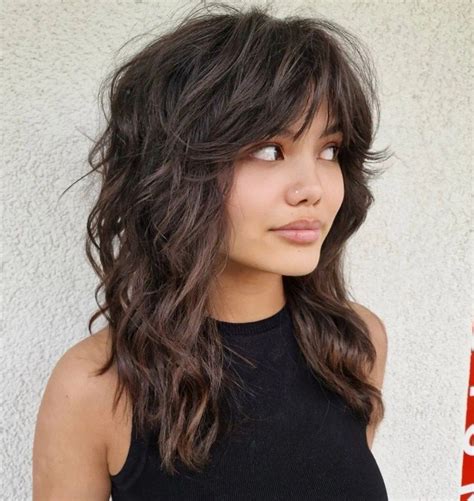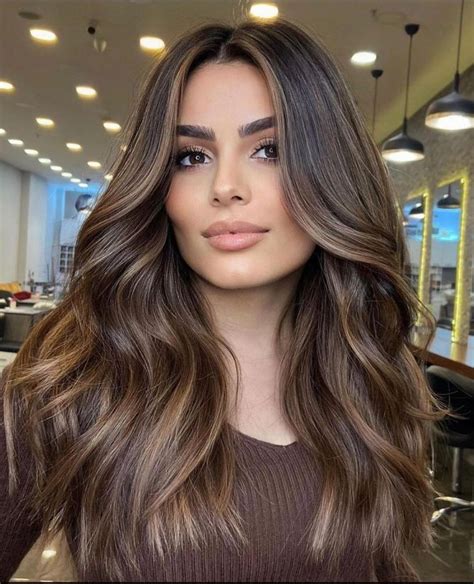When it comes to transforming your look, a new hair color can be the ultimate game-changer. With countless shades and techniques to choose from, finding the perfect hair color for your individual style and preferences can be a daunting task. This comprehensive guide will empower you with everything you need to know to achieve your dream hair color.

Why Hair Color Matters
Your hair color plays a significant role in shaping your overall appearance and personal brand. It can:
- Enhance your facial features and skin tone
- Create an instant mood boost
- Express your individuality and make a statement
Benefits of Finding the Perfect Hair Color
Choosing the right hair color can bring numerous benefits, including:
- Increased confidence and self-esteem
- A more youthful and radiant appearance
- A boost in hair health and vitality
- Compliments to your personality and style
Top Hair Color Trends for Women
Every year, new hair color trends emerge, offering fresh inspiration for your next transformation. Here are some of the hottest shades and techniques for women in 2023:
- Bronde: A flattering blend of blonde and brunette, perfect for adding warmth and dimension
- Ombré: A gradual transition from dark roots to lighter ends, creating a natural sun-kissed effect
- Balayage: A freehand painting technique that creates soft, blended highlights
- Ashy Brunette: A cool-toned brown shade that adds sophistication and depth
- Copper Red: A fiery hue that commands attention and complements warm skin tones
Choosing the Right Hair Color for Your Skin Tone
Matching your hair color to your skin tone is crucial for a harmonious and flattering look. Here’s a general guide:
- Warm Skin Tones: Shades such as copper red, golden brown, and honey blonde will complement warm undertones.
- Cool Skin Tones: Ashy brunettes, icy platinum blondes, and silver-gray hues will enhance cool undertones.
- Neutral Skin Tones: Nearly any hair color will suit neutral undertones, but subtle variations can add warmth or coolness.
Hair Color for Different Eye Colors
Your eye color can also influence your hair color choice:
- Brown Eyes: Virtually any hair color can complement brown eyes, but shades like warm browns, golden blonds, and rich reds can create a striking contrast.
- Blue Eyes: Cool-toned hair colors such as icy blonde, ashy brunette, and silver-gray will enhance the intensity of blue eyes.
- Green Eyes: Warm hair colors like copper red, golden brown, and caramel blonde will accentuate the emerald hue of green eyes.
Tables:
Table 1: Hair Color Trends and Corresponding Hair Types
| Hair Color Trend | Suitable Hair Types |
|---|---|
| Bronde | Fine, medium, or thick hair |
| Ombré | Long, medium, or short hair |
| Balayage | Fine, medium, or thick hair |
| Ashy Brunette | Fine, medium, or thick hair |
| Copper Red | Medium or thick hair |
Table 2: Hair Color for Skin Tones
| Skin Tone | Recommended Hair Colors |
|---|---|
| Warm Skin Tones: | Copper red, golden brown, honey blonde |
| Cool Skin Tones: | Ashy brunettes, icy platinum blondes, silver-gray |
| Neutral Skin Tones: | Almost any hair color, with variations for added warmth or coolness |
Table 3: Hair Color for Eye Colors
| Eye Color | Recommended Hair Colors |
|---|---|
| Brown Eyes: | Warm browns, golden blonds, rich reds |
| Blue Eyes: | Icy blonde, ashy brunette, silver-gray |
| Green Eyes: | Copper red, golden brown, caramel blonde |
Table 4: Hair Color and Hair Health
| Hair Color | Potential Impact on Hair Health |
|---|---|
| Permanent hair color | May damage hair cuticle |
| Semi-permanent hair color | Less damaging, fades over time |
| Temporary hair color | Minimal damage, washes out in a few washes |
| Henna and other natural hair dyes | Can condition and strengthen hair |
How to Choose the Perfect Hair Color for You
Follow these steps to find the perfect hair color for your individual style and features:
- Determine your skin tone and eye color: This will help you narrow down your choices.
- Consider your hair texture: Certain hair colors may be more suitable for your specific hair type.
- Think about your lifestyle and personality: Choose a hair color that complements your lifestyle and reflects your personality.
- Consult a professional hair stylist: An experienced stylist can provide personalized recommendations and help you achieve your desired look.
How to Care for Your Colored Hair
Once you’ve found your ideal hair color, proper care is essential to maintain its vibrancy and health:
- Use color-protecting shampoo and conditioner: These products are formulated to minimize color fading.
- Limit heat styling: Excessive heat can damage colored hair.
- Get regular trims: Trim damaged ends to prevent breakage and maintain healthy hair growth.
- Use leave-in treatments: These products can nourish and protect colored hair.
FAQs
1. Can I change my hair color multiple times?
Yes, but it’s important to give your hair time to rest and repair between color changes.
2. How often should I touch up my roots?
Every 4-6 weeks for permanent hair color, or as needed for semi-permanent or temporary dyes.
3. Can I dye my hair at home?
While it’s possible, it’s recommended to consult a professional hair stylist for best results, especially for complex color changes.
4. What are the risks of hair coloring?
Potential risks include hair damage, allergic reactions, and color fading over time.
5. Is there a natural way to change my hair color?
Yes, certain plants and natural ingredients, such as henna, can be used as natural hair dyes.
6. What is ombré hair?
Ombré is a gradual transition from dark roots to lighter ends, creating a natural, sun-kissed effect.
7. What is balayage hair?
Balayage is a freehand painting technique that creates soft, blended highlights for a more natural look.
8. What is the difference between permanent and semi-permanent hair color?
Permanent hair color penetrates the hair shaft, providing long-lasting results, while semi-permanent dyes only coat the outside of the hair, fading over time.
